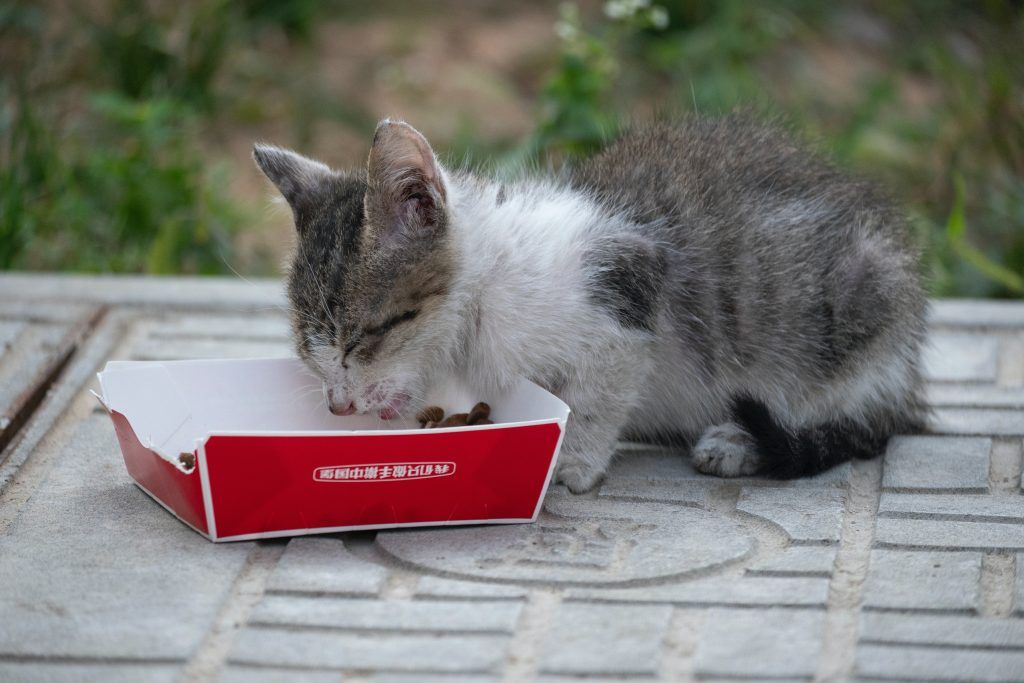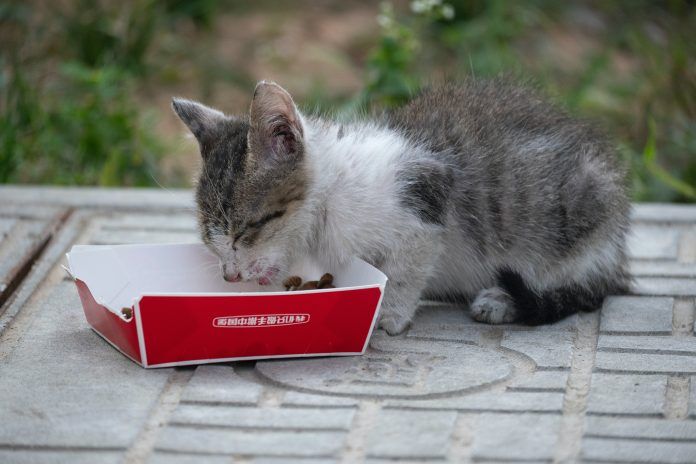Onions are a common ingredient in many foods. As a cat owner, you may wonder if onions are safe for cats to eat. The short answer is no – onions are toxic to cats and should be avoided. But why exactly are onions bad for cats? Let’s take a closer look.
Onion Toxicity in Cats
Onions contain compounds called N-propyl disulfide and thiosulfate which are toxic to cats. Specifically:
Gastrointestinal Issues
Ingestion can irritate a cat’s gastrointestinal tract, causing vomiting, diarrhea and gastric distress.
Anemia
With large ingestions over time, onion toxicity can cause the red blood cells to rupture, leading to hemolytic anemia.
Organ Damage
Severe poisoning cases can also lead to liver or kidney damage.
So while small amounts may just cause GI upset, large quantities of onions can be very dangerous and even fatal.
Raw, Cooked or Powdered – All Forms are Toxic
Importantly, onions are toxic to cats in all forms:
- Raw onions
- Cooked onions
- Dried onions
- Onion powder
Cooking or processing onions does not remove or neutralize the harmful substances. So no form of onion should be fed to cats.

Even Small Amounts Can Be Dangerous
Due to their small size, cats do not need to ingest very much onion to experience toxicity.
Vomiting and diarrhea may occur after a cat eats just a small bit of onion. More severe poisoning might require eating a larger quantity over several days.
But since individual cat sensitivity varies, it’s best to avoid onions altogether.
Onion Toxicity Symptoms in Cats
Watch for these symptoms if you suspect onion ingestion:
Vomiting, Diarrhea
Early GI symptoms may occur within a few hours of ingestion. There may also be abdominal pain.
Reduced Appetite
The cat may stop eating due to nausea or GI discomfort.
Lethargy
Seeming tired or less active than normal.
Increased Thirst and Urination
As onion compounds are processed by the kidneys, the cat may drink and urinate more.
Red or Brown Colored Urine
This signals the breaking down of red blood cells.
Pale Gums, Rapid Heart Rate, Panting
Signs of anemia from red blood cell damage.
Jaundice
Yellowing of the gums, skin and whites of the eyes. Indicates liver issues.
If you observe any concerning symptoms in your cat, bring them to the vet right away since prompt treatment greatly improves the prognosis.
Preventing Access to Onions is Key
Since onions are toxic to cats in all forms, prevention is the best medicine. Follow these tips to keep your cat safe:
No Table Scraps
Never feed cats onion-containing leftovers like pizza, sandwiches, dinners, soup, etc. Check all human foods before sharing.
Secure Trash
Make sure bathroom and kitchen trash cans have tight lids. Cats can be tempted by discarded onion peels and skins.
Keep Counters Clear
Don’t leave onions, onion powder or cooked onion-based foods within a cat’s reach. Wipe up any onion juices.
Check Ingredients
Onion powder is common in many cat foods and treats, so check labels carefully and avoid any products containing onions.
Monitor the Garden
If you grow onions or chives, make sure your cat does not have access to nibble on the fresh shoots and leaves.
Speak with Pet Sitters
Inform anyone caring for your cat, like pet sitters, about the dangers of onions and the need to prevent access.
What to Do if Your Cat Eats Onion
If you know or suspect your cat has ingested onion, take action quickly:
- Contact your veterinarian or the ASPCA poison control hotline for advice.
- They may recommend bringing your cat in for evaluation and supportive care to address symptoms and prevent dehydration or anemia.
- Treatment may include fluids, anti-nausea medication, blood cell counts, and liver or kidney function testing.
- In severe cases, a blood transfusion may be needed.
- With prompt vet care, most cats recover fully after ingesting small to moderate amounts of onion.
Never wait and see if a cat that ate onion seems “okay.” Get veterinary guidance immediately for the best outcome.
Are Other Allium Vegetables Also Harmful?
Yes, other plants in the allium family also contain compounds toxic to cats, including:
Garlic
Garlic is very dangerous and can cause hemolytic anemia even in small amounts. Never feed cats garlic.
Chives
Chives also contain organosulfides so should be kept away from cats.
Leeks
Similar to onions, leeks can irritate the digestive tract and cause anemia.
Scallions (Green Onions)
Scallions are the same species as regular onions and toxic to cats as well.
Shallots
Though milder than regular onions, shallots can still potentially cause problems for cats.
So garlic, chives, leeks, scallions, shallots and other alliums should all be kept away from cats along with onions.
Good Diet Alternatives for Cats
While onions are dangerous, there are many healthy human foods cats can eat in moderation, such as:
- Cooked chicken, tuna or salmon (remove bones and skin)
- Small pieces of lean deli meats
- Shredded cheese or cottage cheese
- Scrambled or hard boiled eggs
- Unsalted broths and pureed vegetables
- Small amounts of plain yogurt
Check with your vet for other people food suggestions that are safe for your cat. Stick to high quality cat foods formulated for feline nutrition needs.
The Bottom Line
Onions should never be fed to cats due to the risk of toxicity leading to gastrointestinal issues, anemia, and organ damage. Prevent access to onions in food prep areas and trash cans. If ingestion occurs, promptly contact your veterinarian or poison control. Keep onions and related allium family members totally away from your cat.
Conclusion
Onions contain substances called N-propyl disulfide and thiosulfate that can damage red blood cells and cause toxicity when ingested by cats. All forms of onions are harmful, and effects range from simple gastric upset to life-threatening anemia and organ damage in large amounts. Strictly keep onions away from cats, monitor for any exposure, and treat rapidly if poisoning occurs. With vigilance, cat owners can keep their feline companions safe from the dangers of onions and related allium vegetables.

